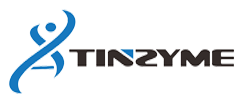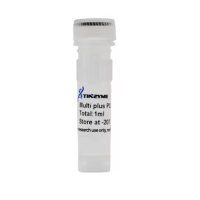
Super Fi Amplification Mix for NGS
2024-10-30
Animal Detection Probe Mixture (UNG)
2024-10-30Product Number: PCK48
Shipping and Storage
Box 1 -20℃ storage, dry ice transportation.
Box 2 2-8℃, transported in ice bags
Components
- Box 1
| Component | PCK48 24rxns | PCK48 96rxns |
| FER Buffer | 240 μL | 960 μL |
| FER Enzyme Mix | 120 μL | 480 μL |
| T4 DNA Ligase | 72 μL | 288 μL |
| T4 DNA Ligase Buffer | 336 μL | 672 μL×2 |
| 2×Super HiFi PCR Mix | 600 μL | 1.2 mL×2 |
| Neutralization Reagent | 120 μL | 480 μL |
- Box 2
| Component | PCK48 24rxns | PCK48 96rxns |
| Magnetic Bead | 1.5 mL×2 | 4 mL×3 |
Description
The Universal DNA Library Kit (Illumina&MGI) is a second-generation sequencing enzyme digestion library kit developed for Illumina and MGI sequencing platforms. It includes three modules: DNA fragmentation/end repair/addition of A, adapter connection, and pre mixed enzymes required for library enrichment in library construction.By controlling the reaction time, sample DNA fragments from different sources such as 0.1ng-1μg genomic DNA, PCR amplification products, and FFPE can be reduced to small fragments, avoiding tedious ultrasound processes and instrument dependence.This kit simplifies the purification steps and shortens the library construction time. In the amplification module, high fidelity DNA polymerase is used for library enrichment, and PCR amplification is performed without preference, ensuring the accuracy of sequencing results.
Features
- Accurate enzyme digestion, fragment end repair and A tube completion, without the need for purification and direct connection to the connector.
- After connecting the joint, use matching magnetic beads for direct sorting (optional).
- High fidelity enzymes for PCR enrichment and amplification minimize amplification preference.
- Suitable for building libraries for different species such as humans, animals, plants, microorganisms, etc. The resulting library is applicable to various platforms such as Illumina and MGI.
Self provided instruments, reagents, and consumables
- Joint Primer Kit
MGI platform: Single ended short connector primer kit I/II/III;
Illumina platform: single ended short connector primer kit I/II, double ended short connector primer kit.
- DNA quality control: Agilent Technologies 2100 Bioanalyzer or other equivalent products.
- DNA purification magnetic beads: use the kit's built-in matching magnetic beads.
- Other materials: low adsorption PCR tube, 1.5 mL centrifuge tube, filter gun head, magnetic rack, anhydrous ethanol (100% ethanol, analytically pure), deionized water (pH 7.0-8.0), PCR instrument, etc.
Preparation and precautions before the experiment
- Sample Fragmentation
- Sample eluent: It is recommended to elute DNA samples with pure water. To determine the sample concentration and quality, it is recommended that sample A260/280=1.8-2.0, and the sample loading amount should be between 0.1ng-μg.
- If there are many impurities in the sample that will affect downstream experiments, it is necessary to purify the sample DNA through magnetic beads, screen out the impurities, and wash it off with pure water.
- This reagent kit is compatible with different species and can be recommended for use according to the instructions. For FFPE samples, different interruption times are selected based on the degree of degradation. For specific conditions, please refer to Appendix 1 for examples.
- This reagent kit has a certain degree of resistance to metal chelating agents. It is recommended to control the final concentration of EDTA in the system within 0.2mM. If the final concentration of the system is ≥0.2mM, it is recommended to add a neutralization buffer.
- Joint
- This reagent kit does not come with sequencing platform connector primers, and requires self matching of corresponding platform connector primers to complete library construction. This reagent kit is compatible with both single and double end connectors of conventional reagent kits.
- The usage of connectors directly affects the quality of the library. If the input is too high, there will be residual dimers. If the input is too low, it will affect the connection between connectors and inserted fragments. The usage of connectors can be selected according to Table 5.
- Magnetic bead
- This reagent kit comes with magnetic beads, which are preferred for library purification or screening.
- When customers match other purified magnetic beads, they need to re explore the proportion of magnetic bead sorting and purification.
- Library amplification
- This kit does not provide connector amplification primers and requires self matching of connector primers from relevant platforms for amplification.
- The number of cycles for library amplification is set based on the input amount. Problems such as low outbound concentration, high amplification preference, and accumulation of amplification mutations have increased. Please refer to Table 10 for specific cycle numbers.
- Library length sorting
- During the library construction process, length sorting can result in significant DNA loss, leading to a decrease in library complexity and output. When the input DNA is less than 50ng, library screening or screening after PCR amplification is not recommended.
- The position for length sorting can be selected after connector connection or PCR amplification for sorting. The specific sorting steps can refer to the operation content.
- Other precautions
- Due to the enzymatic reaction involved in the fragmentation process using this product, the fragmentation process is sensitive to factors such as reaction temperature, reaction time, system preparation, and DNA sample loading.
- To avoid the impact of repeated freeze-thaw of reagents on library production, it is recommended to pack and store them for the first time in use.
- PCR products are prone to contamination due to improper operation, resulting in inaccurate experimental results. It is recommended to isolate the PCR reaction system preparation area from the PCR product purification area, and use a dedicated pipette to regularly clean each experimental area.
- Take out the corresponding reagent from the kit, centrifuge briefly, and place the enzyme mixture on ice for use; The buffer solution needs to be dissolved at room temperature before use, shaken and centrifuged, placed on ice for use, and deionized water placed at room temperature for use; Please prepare the mixture on ice. After the buffer solution in the reagent kit freezes and dissolves, precipitation may occur. Precipitation does not affect the function of the reagent. Please shake and mix thoroughly until the precipitation disappears before use.
Schematic diagram of DNA database construction process

DNA library construction process
Please read this operating instruction carefully before the experiment and choose the operating plan based on the type of sequencing platform used. Before the experiment starts, clarify the nucleic acid concentration, and the input amount of this reagent kit is 0.1ng-1μg. The recommended sample size is 1ng-500ng DNA. DNA solution does not contain chelating agents, if DNA dissolves in 1×TE or EDTA containing solutions, it is recommended to use magnetic beads for purification or add Neutralization Reagent.





